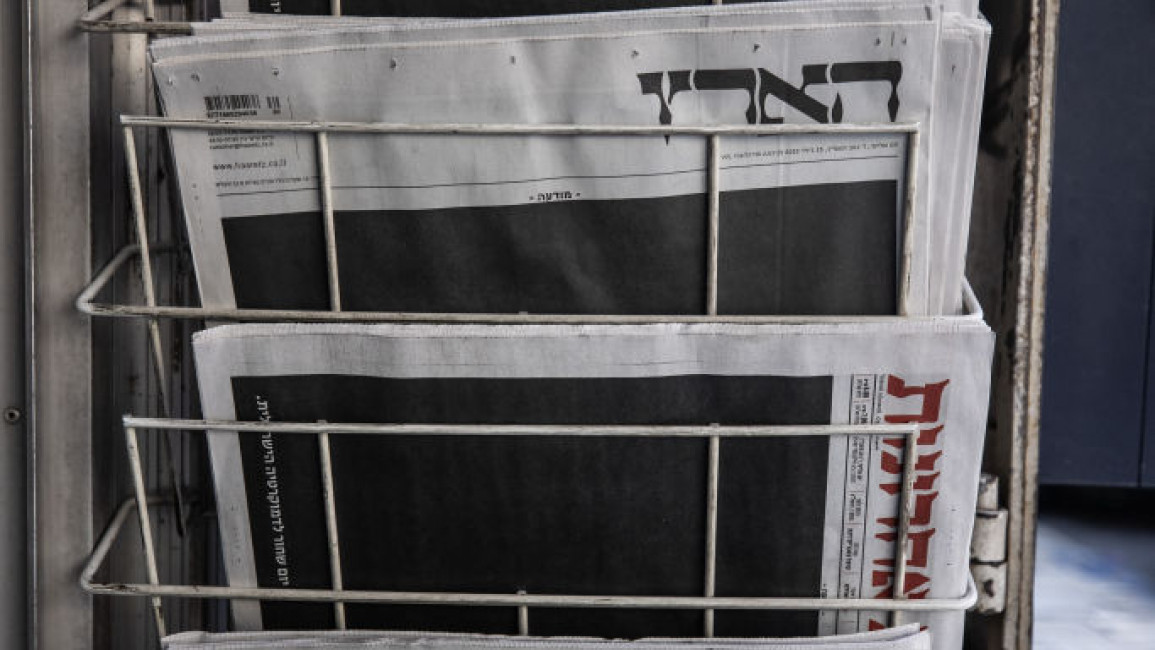What is Israel's military censor and why did it allow details of the SIM cards case to be released?
Israel's military censor has allowed publications to disclose information on reports that Israel's security services were monitoring the activation of Israeli SIM cards in Gaza before Hamas' 7 October attack.
The story, which had previously been kept secret from the public by the military censors, broke following a segment on Israel's Channel 14 when it was claimed that a thousand SIM cards were activated shortly before the Hamas attacks in southern Israel, according to Israel's Haaretz newspaper.
The incident pushed the military to lift the ban on the stories, with Israel's Yedioth Ahronoth claiming in an article published on Monday that it had known about the details of the incident but that "censorship prevented their publication for an extended period".
One senior defence source speaking with Haaretz complained that "there is no reason to do it. It is not clear why anyone needed to reveal why we have such capabilities", adding that the military had already signed off a brief report on the issue from Israeli journalist Nadav Eyal.
It also allowed the military and Shin Bet to downplay the number of SIMs activated on 7 October, saying only dozens of cards went online.
What are Israel's military censors?
Israel's military censors derive from a 1945 emergency law that was enacted during the British mandate, becoming incorporated into Israel following its establishment in 1948.
According to Reporters Without Borders (RSF), media working on different security issues require the approval of the military censor, with civil defamation suits and criminal defamation a prospect for reporters who don't abide by the censorship.
However, there is an implicit agreement between the Israeli press and the military censor on several issues, as noted by Guy Lurie and Tehilla Shwartz Altshuler writing for the Israel Democracy Institute.
They note that the military censor cannot ban publications for damaging the reputation of the military or politicians but can if they harm state security.
Although politicians are increasingly attempting to influence the military censor, it has been able to retain a degree of independence.
In addition, the censors' powers can be appealed to a committee, providing for a cooperative relationship between the two.
This committee had previously been the Editors Committee, which consisted of a member of the press, the military and a publicly elected official to preside over said cases, although now this is overseen by three members of the press.
How has censorship been used in Israel's war on Gaza?
Israel's war on Gaza has seen the military censor spring into action, with The Intercept reporting on an order requiring the media to submit articles on eight subjects to the censor before publication.
This includes articles on Israeli hostages held in Gaza, operational details on Israel's war, intelligence concerning Hamas' capabilities, the details of weapons systems used by the Israeli military, rocket attacks that struck strategic infrastructure, cyber attacks against the government or Israel's adversaries, visits by officials to combat zones, and details of cabinet meetings.
The Intercept also notes that the culture around the Israeli press and the military censor has ensured a degree of self-censorship, both historically and today, as seen in the Yedioth Ahronoth confirmed they were aware of the SIM card incident before the Channel 14 revelation.
In addition to Israeli press, foreign press that are embedded with the Israeli military in Gaza have their footage reviewed by the censor, although some outlets like NBC saying it does not send the final story to the military censor for review.
As well as censorship from the military, a report by the Committee to Protect Journalists (CPJ) notes numerous incidents of attempted censorship by the Israeli government, largely on foreign or Palestinian reporting.
One notable example however was in November, when communications minister Shlomo Karhi attempted to cease state funding via commercial connections to Haaretz newspaper over the publications "defeatist and false propaganda".
The report also notes incidents where Israel had arrested, threatened and assaulted journalists covering the war. Israel has also killed numerous journalists in Gaza, with 50 media offices being damaged.


![President Pezeshkian has denounced Israel's attacks on Lebanon [Getty]](/sites/default/files/styles/image_684x385/public/2173482924.jpeg?h=a5f2f23a&itok=q3evVtko)



 Follow the Middle East's top stories in English at The New Arab on Google News
Follow the Middle East's top stories in English at The New Arab on Google News


